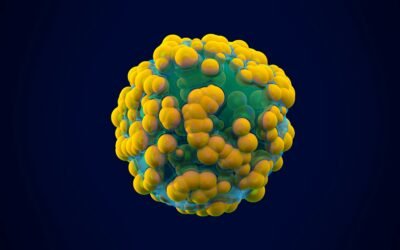16 July 2025

Osteoporosis is a serious bone disease that makes bones weak and more likely to break. Over 43 million people in the U.S. have low bone mass and are at risk. Women, especially after menopause, are most affected, but men over 60 can also develop it.
Why does osteoporosis happen?
As we age, we naturally lose about 1% of bone mass per year after age 40. After menopause, women can lose bone much faster — up to 2–3% per year or more.
Hormones like estrogen and testosterone help keep bones strong. When these hormones drop (like during menopause or in older men), bones start to break down faster than they rebuild. Vitamin D, calcium, and other nutrients also play a big role in bone health.
Other risk factors include:
-
Excessive alcohol consumption
-
Smoking
-
Lack of exercise
-
Long-term use of certain medications (like cortisone)
How bones stay strong
Bones are constantly renewing. They need a strong matrix (basic structure) plus minerals, especially calcium, to stay hard and stable. When calcium levels in the blood drop, the body pulls calcium from bones, making them weaker.
What helps prevent osteoporosis?
A bone-friendly diet and regular exercise are key.
Important nutrients for bone health
-
Calcium: Found in milk, yogurt, cheese, broccoli, kale, soybeans, nuts, and calcium-rich mineral water.
-
Vitamin D: Helps absorb calcium. You get it from sunlight and fatty fish, or through supplements if needed.
-
Magnesium, zinc, vitamin C, vitamin B6, and vitamin K2: Support bone building and strength.
Protein and bones
Older adults often eat too little protein, which leads to loss of muscle and bone mass. While high protein can increase calcium loss through urine, enough protein is still important to maintain muscle and support bones.
Lifestyle tips for strong bones
-
Eat a varied, balanced diet rich in calcium and vitamin D.
-
Exercise regularly, including strength and balance training.
-
Avoid smoking and limit alcohol.
-
Maintain a healthy weight.
The Metabolic Balance nutrition plan can help personalize your diet to support bone and overall health.
Takeaway
Strong bones need more than just calcium. A healthy lifestyle — with good nutrition, proper vitamins, and regular activity — is the best way to protect against osteoporosis and keep bones strong as you age.
Related Articles
Autoimmune Diseases: When Your Body Attacks Itself
Autoimmune diseases are becoming more common, affecting about 5–8% of people worldwide. There are over 60 types known today.
Healthy Food to Fight Migraine Pain
Migraines are severe, throbbing headaches that can leave you unable to work or enjoy daily life. Around 10–15% of adults experience migraines each year, and women are affected more often than men.
Some people also experience an aura before an attack — vision problems, dizziness, or tingling — as a warning sign.
Diabetes and Your Immune System: Why Infections Raise Blood Sugar
When flu season arrives, colds and infections spread quickly. For most people, these are just minor annoyances. But for people with diabetes or insulin resistance, infections can be dangerous.




